SUMMARY
This is AI generated summarization, which may have errors. For context, always refer to the full article.
![[OPINION] Debunking ‘Madman Putin’ as the culprit of the Russia-Ukraine War](https://www.rappler.com/tachyon/2022/03/debunking-madmad-putin-march-29-2022.jpg)
There are current efforts that push this narrative that the Russian-Ukrainian War is a Manichean clash between “Good versus Evil.” Recently, an article argued that the Russian invasion stemmed from Russia’s President Vladimir Putin’s alleged “irrationality,” connotated as paranoia regarding the North Atlantic Treaty Organization’s (NATO) institutional verbose – that is, the Russian leader could have recognized NATO’s effort “to better international relations and promote conditions of stability and well-being” as stated in its treaty’s Article 2. This narrative, however, fails to understand the strategic realities of international politics.
International politics is complex and could be best described as paradoxical, whereby the logic of war and peace are not mutually exclusive conditions in the conduct of statecraft. Consequently, to say that Russia should believe that NATO does not pose an aggressive posture just because the provisions in their treaty say otherwise betrays that paradoxical logic. When one state enhances its material capabilities that possess a formidable projection, other neighboring countries are likely to perceive this as a sign of aggression. Not to mention that a state’s intentions can never be certain. The best tool to analyze the Russo-Ukrainian War and the role of NATO, therefore, is through the lens of strategic affairs.
Robert W. Murray and Stephen Grimslay define strategy as “a process, a constant adaptation to the shifting conditions and circumstances in a world where chance, uncertainty, and ambiguity dominate.” This definition reflects the realities of the international system, whereby the anarchic condition and the pursuit of power push states to adopt a “self-help” system, especially in national security and interests in which scholars like John Mearsheimer and Stephen Walt direct the sole objective of a state to survive under the realities of anarchy. In this context, states use international law when it suits them and reject it outright when their interests are threatened. It should be a common principle to explain the world as it is rather than how it ought to be.
According to John Mearsheimer, the US pursued a grand strategy of Liberal Hegemony to maintain its “superpower” position in the international system through norms, rules, principles, and institutions constructed under its leadership; among these establishments is NATO. This hubris came from the open admittance of the late US Secretary, Madeleine Albright, that NATO’s expansion is not an offensive strategy because of its “basic achievement to begin the construction of the networks of rule-based institutions and arrangements that keep the peace.” That statement, however, was self-defeating as she warned decades ago that “our challenge today is to finish the post-war construction project and expand the area of the world in which American interests and values will thrive….” In the same vein, former US President Bill Clinton also maintained the same spirit of American hegemonic aspirations; he espoused that “democracies resolve their differences peacefully.”
These conditions of constructing an alliance based on liberal assumptions do not guarantee universal peace, but a suspended appeasement policy for Russia. George F. Kennan, the American diplomat responsible for the US’ post-World War II grand strategy, remarked that NATO’s expansion was the most “fateful error” in the post-Cold War era. This expansion, he said, would practically close the door for the US and its allies to be partners for regional stability vis-a-vis Russia. Granted that NATO-Russia relations were somewhat institutionalized in 1997 through the NATO-Russia Founding Act on Mutual Relations, Cooperation, and Security. However, that has to be taken into perspective: western diplomacy was instrumental to exploit the advantages of the post-Cold War order, all the while Russia was at that time, also exposed of its vulnerabilities, such as its military-operational failures to win the First Chechen War in 1996.
Despite open initiatives of NATO, such as the NATO-Russia Founding Act and Bucharest Summit, it cannot be overstated that these are deemed false promises to include Russia in a more inclusive post-Cold War European security architecture. The West left Russia buried under the sands. The failure of making concessions did not find any form of compromise between Russia’s demand for effective security guarantees in former Soviet spaces and NATO’s promise to maintain regional stability in Europe. In short, Putin’s motivations are less of ill-defined irrationality than a divergence of interests based on deep-seated historical and geopolitical concerns.
Therefore, the argument of irrationality that stems from the so-called “madman” theory is impractical to deduce insights regarding Putin’s motivations in the messy and complex strategic dimension of international politics. The denial of the Western powers towards Putin’s view on Russia’s security concerns furthers the latter’s aggressiveness towards Ukraine. Irrationality itself is hard to verify methodologically; Putin may display authoritarian tendencies, but it is irrelevant to the strategic discourse.
As regards the ongoing war, it is critical to defer to what the Prussian strategist Carl von Clausewitz said: war is an activity to compel an enemy to do one’s will, which is exactly what Putin is doing vis-a-vis the West. We can safely assume that the Russian President is a strategist in order to deter the expansion of NATO, affirming one of Sun Tzu’s famous quotes of knowing the enemy and yourself in order to win battles.
At the tactical level, propaganda, diplomatic rhetoric, and disinformation are not the primary domains of warfare in this current war. As tragic as it may sound, both “truth” and “propaganda,” however defined, always work hand-in-hand in war. More so, there is an overhype in the emphasis of information and cyber warfare without taking into account the reemergence of conventional warfare. We see that the Russian invasion suggests the comeback of traditional ways and means of military strategy and operations, alongside the use of non-kinetic means. But this is nothing new; Clausewitz pointed out in his seminal work that war is simply about the usage of all means available at one’s disposal. Moscow’s strategic objective of waging a limited war in order to secure and absorb breakaway regions of Donetsk and Luhansk as the primary goal to distract, stretch out Ukrainian military forces as thinly as possible away from Kiev. The long road is not taken to offset high chances of a protracted conflict.
The way forward for policy, of course, could not be as simplistically linear as that of appeasement. On the contrary, the policy that underscores the balance of power is the safest way to preserve regional stability. As for Ukraine, the country would need to face the tradeoffs of its chosen foreign policy – a strong likelihood of a protracted warfare against Moscow despite reports indicating the latter’s huge losses. On a side note, Ukraine’s hybrid warfare approach forges military advantages. This fight may not be swift, but stalling Russian armed forces’ offensive produces more political challenges for the Kremlin. This goes to show that Kyiv undergoes the geostrategic process of “Philippinedization” to win the dangerous gamble of war.
The late Anglo-American strategist Colin Gray said that “the enemy too has a vote.” The West must consider Russia’s security dilemma if they genuinely want territorial security, however difficult or insulting as it may be. Edward Luttwak affirms this in his seminal work: “divided by common interests that are not mutual, they [states] are usually in perfect agreement on the goodness of peace and the badness of war, but they cannot act on those commonsense findings because the one-sided pursuit of peace and disarmament would be a powerful incentive to the adversary to intensify its own pursuit of war.” At the end of the day, preserving peace raises the need to recognize and embrace the paradoxical logic of war and peace. – Rappler.com
Rhon Ethelbert Ducos is a BA International Studies student at the Polytechnic University of the Philippines (PUP). He currently serves as a student research assistant at PUP’s Department of Political Science and International Studies. His research interests are land warfare, special operations, strategic intelligence, and military affairs in international relations.
Amadeus Quiaoit is a BA International Studies student at the Polytechnic University of the Philippines (PUP). He currently serves as a student research assistant at PUP’s Department of Political Science and International Studies. His research interests are defense technologies, joint warfighting, grand strategy, and military affairs in international relations.
Add a comment
How does this make you feel?
![[New School] Perception or truth? Debunking NATO’s ‘fault’ in the Russia-Ukraine War](https://www.rappler.com/tachyon/2022/03/russia-ukraine-crisis-protest-thailand-february-27-2022-scaled.jpg?fit=449%2C449)
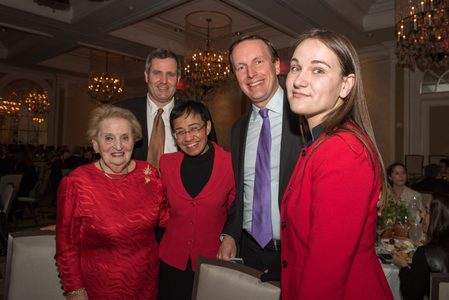

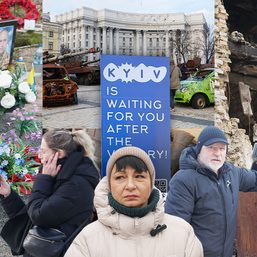
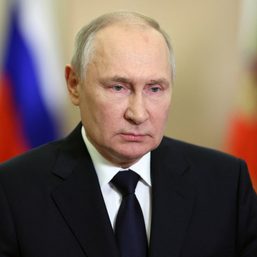
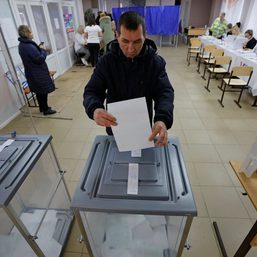
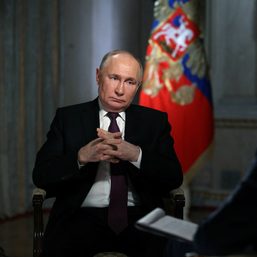
There are no comments yet. Add your comment to start the conversation.